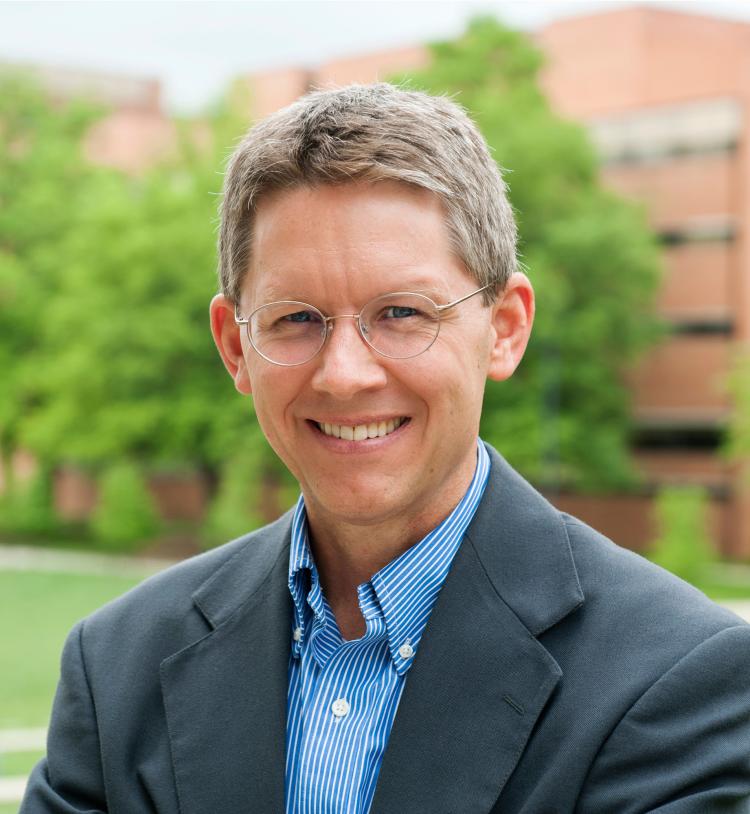Professor Michael Summers will reflect on his time with the Meyerhoff Scholars Program and what lessons can be learned
What does it take to excel at creating an inclusive and welcoming environment for graduate students in STEM?
That’s the question that Michael Summers, a chemistry professor at the University of Maryland, Baltimore County, will discuss during his lecture on Sept. 26 at 1 p.m. in the Student Recreation Center – Ice Rink Overlook Conference Space titled: Successful and replicable programs for promoting inclusive excellence in STEM. The event is free and open to everyone, but registration is required.

At the top of the page: Mike Summers with the Meyerhoff Scholars Program. Above: Mike Summers. Both photos courtesy of Mike Summers.
During this hour-long talk, Summers will reflect on the Meyerhoff Scholars Program at the University of Maryland, Baltimore County, which he has led since its inception in 1993.
The Meyerhoff Scholars Program has been recognized by the National Science Foundation and the New York Times for its work increasing retention and academic performance of historically marginalized undergraduates in STEM, and for preparing those undergraduates to pursue and succeed in graduate and professional programs.
More than 1500 students from the program have graduated since it began, of which more than 426 alumni have earned PhDs, 74 have earned MD-PhDs, 160 have earned MDs, and 330 have earned master’s degrees. Seventy-one alumni currently hold faculty appointments at universities like Duke University, University of Michigan, Stanford University, Johns Hopkins University, and the Harvard T.H. Chan School of Public Health.
Summers will also discuss efforts to reproduce this program at other universities that have been similarly successful, and what lessons can be learned.
Mike Summers is a chemistry professor and the leader of the Meyerhoff Scholars Program at the University of Maryland, Baltimore County. He is also a Howard Hughes Medical Institute investigator with a research focus on the molecular structures and mechanisms associated with the genetic packaging and assembly of HIV.
Through this work, he has received numerous national awards in recognition of his outstanding mentoring of students, particularly historically marginalized students in STEM graduate programs.
More information on the event, including how to register, is available here. This event is hosted by the Graduate School and the Department of Biochemistry.
